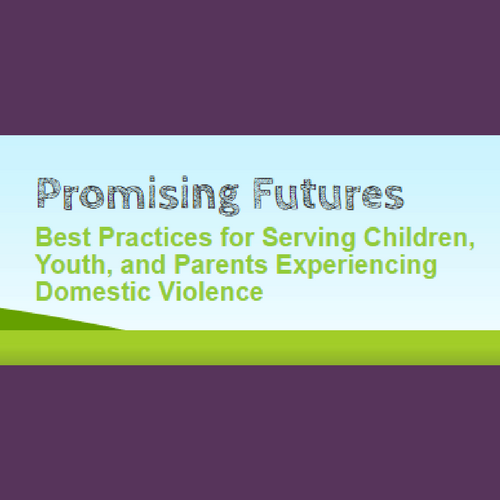Other Resources
RCDV: CPC is only one of several organizations dedicated to increasing awareness of evidence-based practices. Below are a few resources that your organization will find informative and useful in your reform efforts.
Domestic Violence Evidence Project of the National Resource Center on Domestic Violence
The Domestic Violence Evidence Project (www.dvevidenceproject.org) combines research, evaluation, practice and theory to inform critical thinking and enhance the field’s knowledge to better serve survivors and their families. In addition to research summaries in key areas of domestic violence intervention and prevention, this online resource center includes evaluation tools to assist advocates with documenting and continually advancing their work.
Promising Futures
If you are interested in promising and evidence-based clinical interventions for children and youth, please visit the Promising Futures: Best Practices for Serving Children, Youth, and Parents Experiencing Domestic Violence at promising.futureswithoutviolence.org. This website also offers information for domestic violence programs and advocates on assessing program readiness, implementing research-informed practices, and building staff capacity on a variety of topics.
National Latin@ Network for Healthy Families and Communities
If you are interested in learning about the evidence-building efforts for culturally-specific populations, please visit the National Latin@ Network for Healthy Families and Communities, a project of Casa de Esperanza at http://nationallatinonetwork.org/be-toolkit-home.
The Building Evidence Toolkit is unique as it was developed in collaboration with five Latin@ serving community-based organizations (CBOs) that were interested in building the evaluation capacity for themselves and other CBOs like them. The website includes a step-by-step process for organizations that are beginning to build evidence of their programs, in addition to information about culturally-specific elements of their work for organizations that are more advanced in their evaluation experience. The website includes online worksheets, information on relevant principles and theories, and measurement tools.
The Building Evidence Toolkit is unique as it was developed in collaboration with five Latin@ serving community-based organizations (CBOs) that were interested in building the evaluation capacity for themselves and other CBOs like them. The website includes a step-by-step process for organizations that are beginning to build evidence of their programs, in addition to information about culturally-specific elements of their work for organizations that are more advanced in their evaluation experience. The website includes online worksheets, information on relevant principles and theories, and measurement tools.



